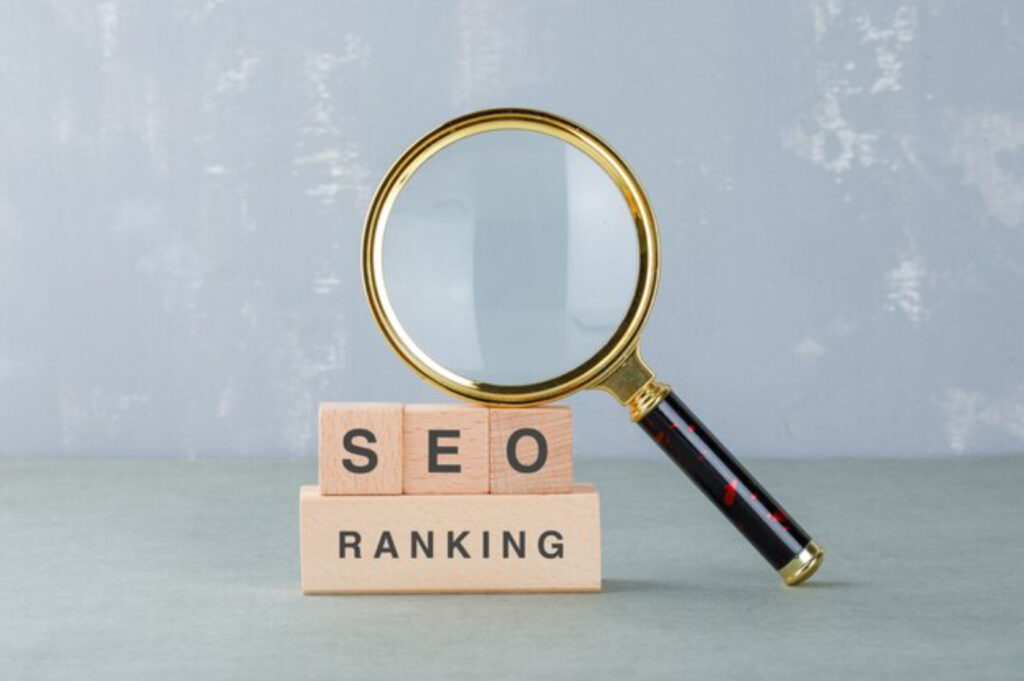Welcome to our Ultimate SEO Guide, where we will delve into the key strategies and best practices for mastering Google ranking success. Whether you’re a seasoned digital marketer or just starting out, understanding and implementing effective SEO techniques is crucial for boosting your online visibility and driving organic traffic to your website. In this comprehensive guide, we’ll cover everything from keyword research and on-page optimization to link building and content strategy, equipping you with the knowledge and tools to elevate your website’s search engine ranking. Let’s dive in and unlock the power of SEO!
Understanding Keywords
Keywords are essential in the world of online searches. They are the specific terms or phrases that people use when looking for information, products, or services online. Understanding the intent behind different keywords is crucial for creating content that meets the needs of your target audience. This involves evaluating the relevance, search volume, and competitiveness of various keywords to determine their potential impact on search engine rankings. Effective keyword usage can significantly improve a website’s visibility and attract relevant organic traffic, making keyword analysis a vital part of any successful SEO strategy.
Keyword Research
Keyword research is a fundamental aspect of SEO, playing a crucial role in identifying the most valuable and relevant keywords for a website or online content. Tools such as Google Keyword Planner and SEMrush can be immensely helpful in discovering popular search terms and evaluating their performance metrics. The ultimate goal of keyword research is to uncover low-competition keywords with high search volume, thereby optimizing content for improved ranking opportunities. It’s important to note that continuous keyword research and analysis are essential for staying updated with evolving search trends and user behavior, ensuring that the content remains relevant and competitive.
Long-Tail Keywords
When it comes to optimizing your website for search engines, long-tail keywords play a crucial role in targeting niche audiences with specific needs. These longer, more specific phrases may have lower search volumes, but they offer higher conversion potential by addressing users’ specific queries and intentions. By incorporating long-tail keywords into your content, you can attract highly targeted traffic, thereby increasing the likelihood of capturing valuable leads or sales. Ultimately, optimizing for long-tail keywords enhances your website’s visibility across diverse search queries, contributing to a more comprehensive and effective SEO strategy.
On-Page Optimization
On-page optimization is a fundamental aspect of SEO that focuses on fine-tuning individual web pages to achieve higher rankings and attract relevant traffic from search engines. This involves optimizing various elements such as meta tags, headings, content, and images to cater to both users and search engines. By conducting thorough keyword research and strategically integrating keywords into the content, the goal of on-page optimization is to enhance organic visibility. Additionally, prioritizing aspects such as page load speed, mobile-friendliness, and overall user experience plays a critical role in ensuring the effectiveness of on-page optimization efforts.
Meta Tags
Crafting effective meta tags is essential for enhancing a webpage’s visibility and performance in search results. These tags, including the title tag, meta description, and meta keywords, not only provide crucial information about the webpage to search engines but also influence click-through rates and search engine rankings. By incorporating relevant keywords and ensuring optimal length, relevance, and uniqueness, website owners can significantly impact their page’s positioning in search results. Therefore, optimizing meta tags is a pivotal part of on-page SEO efforts, contributing to improved visibility and user engagement.
Content Optimization
Content optimization is an essential component of effective SEO strategies, emphasizing the creation of high-quality, relevant content that aligns with user search intent. This involves seamlessly integrating target keywords throughout the content to ensure organic visibility, while also prioritizing readability and value for the audience. Furthermore, the use of engaging visuals, multimedia elements, and structured data markup can significantly enhance content optimization initiatives. Additionally, regularly updating and expanding existing content based on user feedback and performance analytics plays a pivotal role in maintaining a competitive edge in search engine rankings.
Off-Page Strategies
Link building is a crucial component of off-page SEO, playing a pivotal role in signaling the value of your content to search engines. By acquiring hyperlinks from reputable websites, you can establish the credibility and authority of your own site, ultimately boosting its visibility and ranking potential. Additionally, guest blogging on authoritative platforms not only increases brand exposure but also drives valuable traffic back to your website, thereby amplifying the impact of your off-page SEO strategies. Social media engagement is another effective avenue for enhancing off-page SEO efforts, leading to heightened brand visibility and attracting a wider audience across diverse platforms. Furthermore, prioritizing user-generated content, such as reviews, comments, and social media shares, serves as a compelling demonstration of credibility and relevance to search engines, further bolstering the overall effectiveness of off-page SEO initiatives.
Link Building
Strategic link building is a nuanced process that requires a focus on quality over quantity. By seeking backlinks from reputable sources within your industry or niche, you can establish a trustworthy link profile that resonates with search engines and users alike. Diversifying anchor text for backlinks not only contributes to a natural link profile but also increases the likelihood of securing favorable rankings in search engine results pages. Furthermore, the acquisition of backlinks from high domain authority websites through outreach, partnerships, or content collaboration can significantly elevate your site’s SEO performance. However, it’s essential to diligently monitor the health of your backlink profile and actively disavow toxic or spammy links to maintain a robust link profile and avoid potential penalties.
Social Media Engagement
Engaging with followers by responding to comments, messages, and mentions is crucial for building a strong sense of community and fostering increased user interaction across social media platforms. By actively participating in conversations and addressing inquiries, you create a welcoming environment that encourages meaningful engagement. Additionally, crafting shareable content specifically tailored for each platform plays a vital role in stimulating audience participation and effectively amplifying your brand’s messaging. Moreover, strategic employment of paid social advertising serves as a powerful tool for extending the reach of your content to targeted audiences, supporting off-page SEO efforts and generating valuable traffic. Furthermore, collaborating with influencers or industry leaders on social media not only expands your brand’s reach and credibility but also creates opportunities for acquiring valuable backlinks, thereby reinforcing your off-page SEO strategies.
Technical SEO
Optimizing meta tags and descriptions is a strategic approach to boost click-through rates in search results. By fine-tuning these components, websites can effectively communicate their content to search engine users, encouraging higher engagement and visibility. Furthermore, the implementation of an XML sitemap serves as a fundamental tool for enhancing search engine indexation, ensuring that all pages within a website are systematically crawled and categorized. Meanwhile, the optimization of site architecture and internal linking not only elevates user experience but also facilitates the seamless comprehension of content by search engines, contributing to improved rankings and visibility. Additionally, the utilization of structured data markup presents an opportunity to secure prominent placement in search results through rich snippets, thereby amplifying overall visibility and click-through rates.
Site Speed Optimization
To enhance overall site speed, implementing optimization techniques such as compressing images and minifying CSS and JavaScript files can significantly improve website loading times. Additionally, utilizing browser caching can help reduce server load and load times for returning visitors, leading to a more efficient user experience. Moreover, the implementation of content delivery networks (CDNs) can geographically distribute website resources, reducing latency and speeding up page loads. Furthermore, reducing server response time through optimization techniques such as upgrading hardware or software can further enhance the overall speed and performance of the site.
Mobile-Friendly Design
When it comes to optimizing your website for mobile, utilizing responsive web design is essential. This approach not only ensures that your site displays properly across various devices, but also contributes to an enhanced user experience and improved SEO performance. Prioritizing mobile page speed by optimizing images, implementing AMP, and minimizing redirects can positively impact your mobile search rankings, further solidifying the importance of mobile optimization. Moreover, paying attention to details such as legible font sizes, appropriately sized tap targets, and steering clear of interstitials plays a crucial role in creating a seamless mobile user experience. It’s also vital to avoid non-mobile-friendly software like Flash to maintain compatibility with a wide range of mobile devices and uphold a user-friendly mobile interface.
Measuring Google Ranking Success
One way to gauge the success of your SEO efforts is by monitoring the steady growth of organic traffic to your website over time. Tracking the increase in visitors from search engines can provide valuable insights into the effectiveness of your optimization strategies. Additionally, keeping a close eye on the improvement in keyword rankings for relevant search terms is essential for evaluating Google ranking success. Moreover, analyzing the click-through rate (CTR) of your organic search results offers valuable insights into user engagement and the performance of your SEO endeavors. Furthermore, examining the conversion rate of organic traffic can help measure the impact of SEO on lead generation and ultimately sales, providing a comprehensive understanding of your optimization efforts.
Google Analytics
Google Analytics is an indispensable tool for assessing SEO performance, offering comprehensive data on website traffic, user behavior, and acquisition channels. This platform provides valuable insights into keyword performance, allowing you to identify high-performing keywords and optimize for improved results. Additionally, Google Analytics enables the tracking of essential metrics like bounce rate, session duration, and page views to evaluate user engagement and overall website performance. By setting up goals and conversions within the platform, you can accurately measure how SEO efforts directly contribute to specific business objectives, providing a clear and quantifiable assessment of your optimization strategies.
Rank Tracking Tools
Rank tracking tools are essential for gaining real-time visibility into keyword rankings across various search engines, enabling you to effectively monitor your SEO performance. In addition to offering historical data on keyword positions, these tools allow you to analyze trends and make well-informed decisions for your optimization strategies. Moreover, they provide the opportunity for competitive analysis by comparing your rankings with those of competitors, offering valuable insights to enhance your SEO tactics. Furthermore, by tracking SERP features like featured snippets or local pack results, these tools play a crucial role in tailoring your SEO approach to maximize visibility and achieve optimal results.
Conclusion
In conclusion, mastering Google ranking success requires a comprehensive understanding and strategic implementation of various SEO tactics. From conducting thorough keyword research to optimizing on-page content and leveraging off-page strategies, every aspect plays a crucial role in enhancing search engine visibility. Furthermore, technical SEO elements such as site speed optimization and mobile-friendly design are vital for delivering an efficient and user-friendly web experience. Measuring the Google ranking success of SEO efforts involves monitoring organic traffic growth, keyword rankings, and user engagement metrics, with tools like Google Analytics and rank tracking tools offering valuable insights. By consistently refining and adapting optimization strategies based on these insights, businesses can effectively position themselves for sustained Google ranking success and increased online visibility.


